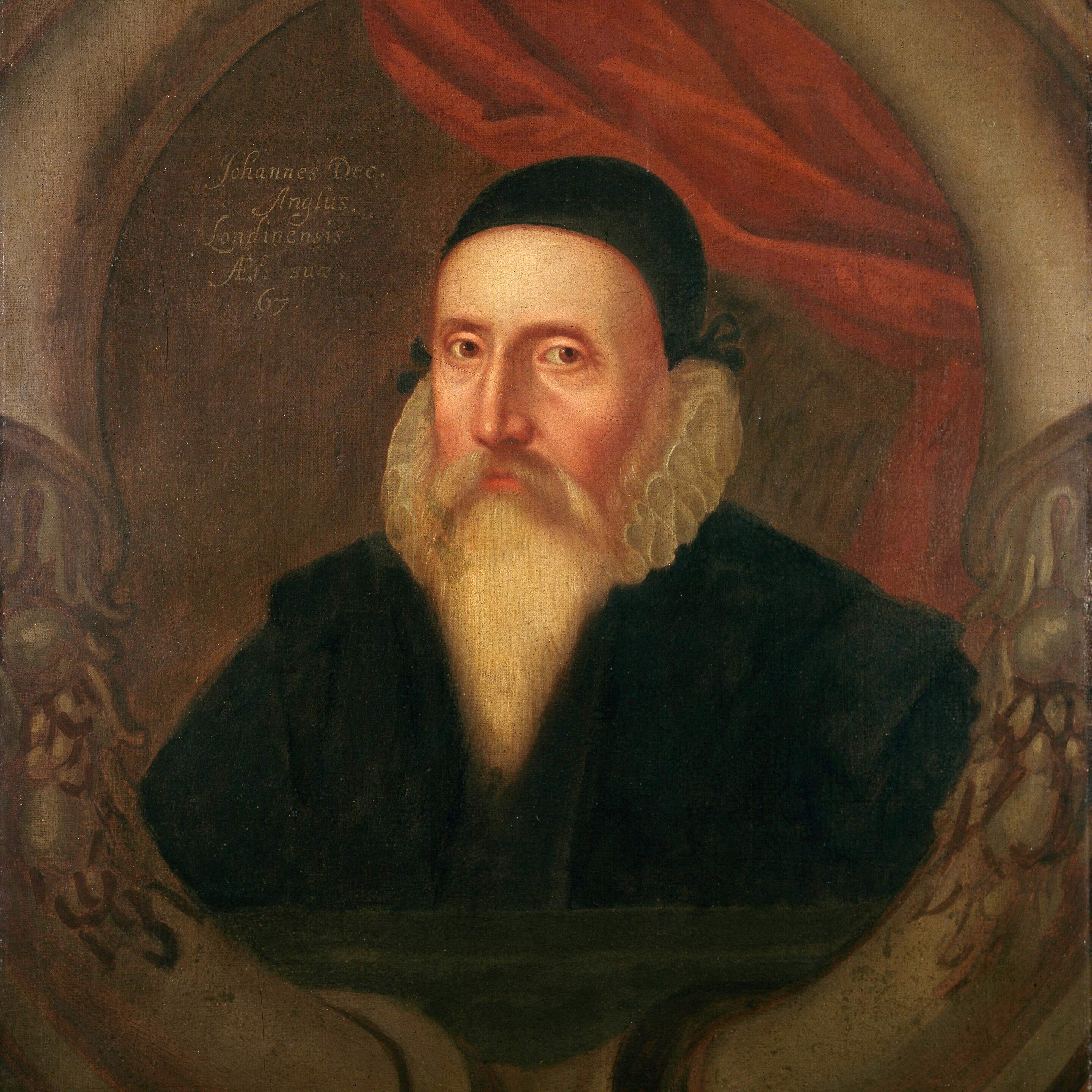Benjamin
Woolley have written a non-sensationalist, almost boring, biography of John
Dee, one of the more spectacular characters of British and European history.
John Dee (1527 - 1609) was a British scientist and mathematician who became notorious for his involvement in the occult. Together with a medium named Edward Kelley, Dee conjured up spirits and angels, who gave him "the secrets of the universe" and a magic "Enochian" language, still being used by self-proclaimed magicians. Astrology and alchemy were among his other interests. Dee was also connected with the court of Queen Elizabeth I, as a scientific advisor. Indeed, Dee was one of the first to propose English imperial expansion, coined the phrase "British Empire", and played a certain role in the search for the famed Northwest passage to China.
Dee's occult interests eventually made him leave England. Together with Kelley, he travelled to Germany, Poland and Bohemia. During this period, he regularly kept in touch with the "spirits" and "angels", organizing séances with the help of Kelley, crystal balls and a magical seer stone. After a fall-out with Kelley, who had claimed that the spirits wanted him and Dee to share their wives in common, Dee returned to England, only to find that his house had been plundered on all books and scientific instruments. Kelley stayed behind in Bohemia, became a nobleman, but was later thrown in jail. His ultimate fate is unknown. Dee died in relative obscurity in 1608 or 1609 (nobody knows for sure!), but his magical books where found decades later, published and...the rest is history.
I first heard of John Dee as a teenager, reading about him in an otherwise reliable encyclopaedia of matters occult. It turns out that the entry on Dee got most things wrong: it claimed that Dee was imprisoned by Queen Elizabeth, and that he toured Europe with a "magic show". Well, not exactly, LOL.
Benjamin Woolley has attempted to disentangle fact and fiction, and come up with a Dee who is surprisingly rational, honest and even somewhat boring. Dee's mixture of science and the occult wasn't strange for his time. Dee apparently didn't see himself as a conjuror or magician, but rather as a scientist exploring the unknown realms of the universe. To him, the "nature magician" was simply using unknown, natural forces. Nor was there anything strange about combining astronomy and astrology. Woolley seconds Dame Frances Yates description of Dee as a true Renaissance man.
So why did Dee constantly get himself in trouble, then? One reason was the widespread belief that the spirits he communicated with were evil, another was his unclear religious sympathies in an age when Catholics and Protestants were deadly enemies. In other words, Dee was too tolerant! Also, his assistant Kelley was a notoriously unstable person. Kelley actually converted to Catholicism, right under Dee's nose, during their protracted stay in Bohemia.
Several things struck me when reading the book. One was that the relationship between Kelley and Dee was very complex. Usually, Kelley is depicted as manipulating the gullible Dee. From "The Queen's Conjuror", I rather got the impression that the two men were manipulating each other. Yes, Kelley must have made it all up (unless you believe in spirits). Very often, however, Kelley wanted the séances to stop, even to the point of arguing that the spirits he called upon were evil, but Dee would force him to continue.
Another thing that struck me were the similarities between the two men and the Mormon prophet Joseph Smith (not mentioned by the author). Today, non-Mormon scholars agree that Smith was a treasure-hunter, a scryer and that he communicated with angels through a seer-stone. Smith also introduced polygamy through a divine revelation, was interested in the Qabalah, and had an obsession with Enoch. The Book of Mormon was supposedly found by Smith when digging in a hill. Compare this to Dee and Kelley: they communicated with spirits and angels through a seer-stone, Kelley claimed to have found ancient documents buried in a hill, Kelley demanded "the sharing of wives" after an angelic revelation, both men attempted to search for buried treasure with the help of magic, Dee was a Qabalist, and his magic language is called "Enochian". An almost perfect match! Did the Mormon prophet had access to John Dee's writings?
"The Queen's Conjuror" isn't a perfect book. Woolley have attempted a fast-paced, popularized study, but Dee's life is so complicated, that the story (perhaps inevitably) gets bogged down in messy details. Sometimes, Woolley looses the red thread.
Still, I found the book interesting, and I recommend it as an introduction to Doctor John Dee, boring conjuror and ultimate Renaissance man.

No comments:
Post a Comment